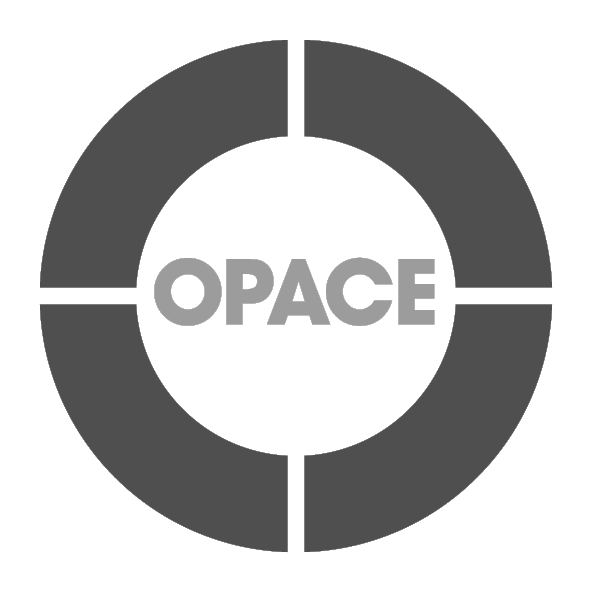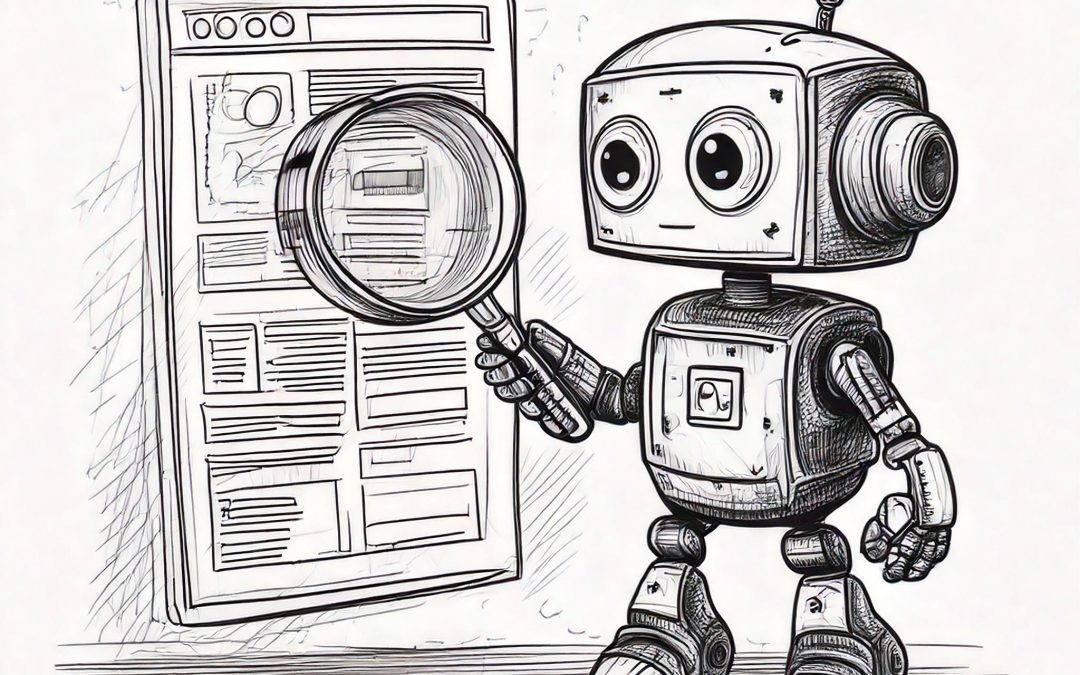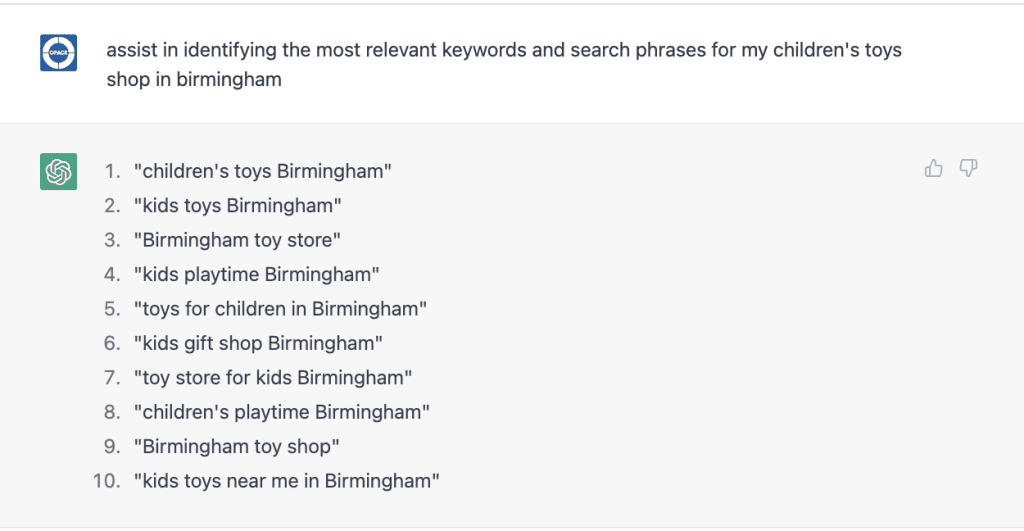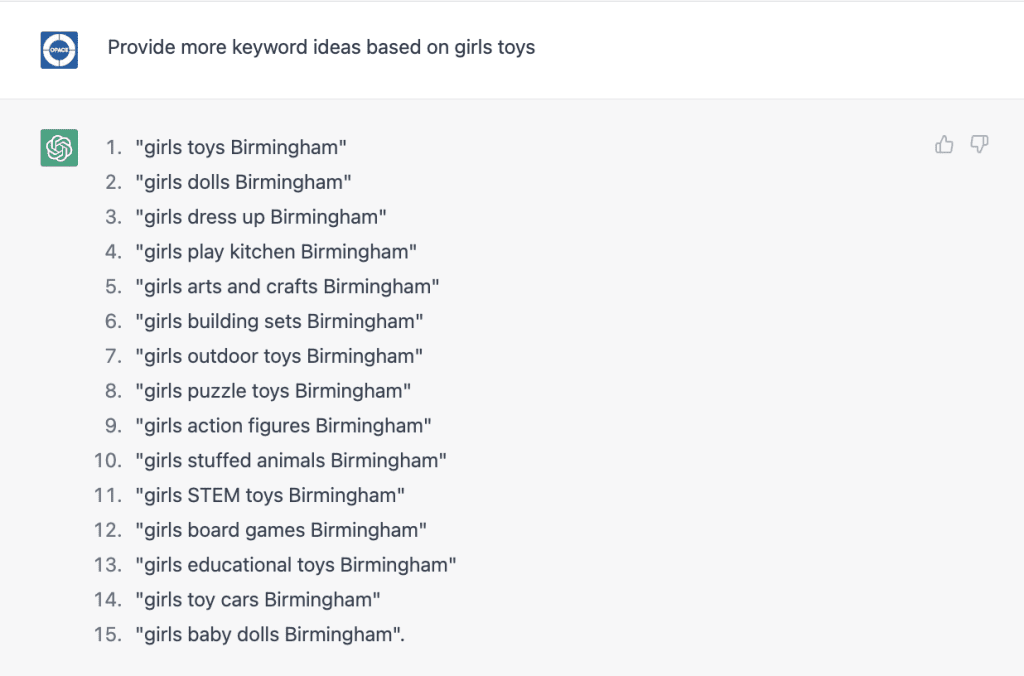You’re probably thinking, “Aren’t these guys supposed to want us to hire them for this stuff so we give free advice about using AI for PPC?”. It’s a fair point, but the reality is that not every business has the budget or the need to pay somebody else to run PPC on platforms like Google Ads.
Our goal has always been to help businesses succeed with their digital marketing however we can—whether that’s by leaning on us when you need professional support or by rolling up your sleeves and tackling things yourself with a little help from us.
On 30th November 2022, the owners of ChatGPT, OpenAI, made their AI tool freely available for the general public and businesses alike to experiment with its capabilities and allow ChatGPT to evolve based on real-world usage. Two years later, it’s now one of the most used applications ever created.
Editors Note [28.11.24]: This guide was first published on January 27, 2023, not long after ChatGPT was first released. Today, we’ve updated the article to provide a more practical, approachable perspective on how businesses and organisations can use AI for PPC with tools like ChatGPT and the very latest models to create and manage their PPC campaigns. Expect more creative ideas, more detail, and more success with our revised guide to using ChatGPT for Google Ads and PPC campaigns of any kind.
How Can AI Be Used For PPC Advertising?
Now, let’s get to the real question: how can AI improve your PPC advertising campaigns? Artificial intelligence (AI) isn’t just a buzzword anymore—it’s literally everywhere. From virtual assistants like Siri and Alexa answering questions to tools that help automate and simplify everyday tasks, AI is quickly becoming a core part of how we all operate.
PPC advertising whether using Google Ads, Bing ads, social media, or digital marketing of any kind is no different. AI is opening up all kinds of opportunities to save time, work smarter, and get better results.
Large Language Models (LLMs) like ChatGPT are designed to process and analyse huge amounts of data, learn from it, and deliver insights or solutions faster than any human ever could. They don’t replace the need for creativity or strategic thinking, but they can handle a lot of the heavy lifting and help automate tasks that would normally take us a long time to complete.
What’s more, these tools can do so in a way that’s indistinguishable from a human. Oh, and did we mention that it can evaluate, explain and even write programming code or markup in different languages, including Python, HTML, CSS and JavaScript? So if it can do all this, the only limitation to how it can assist with something like Google Ads is imagination and determination.
In addition to improving efficiency, models like ChatGPT are trained on vast amounts of data, meaning they have a vast range of general and specialist knowledge. Using tools like ChatGPT, Claude or Gemini allows us to tap into this knowledge with the ability to reason and automate at rapid speeds.
Using AI for PPC makes tasks like analysing trends, optimising campaigns, brainstorming ideas, or identifying new strategies a piece of cake. Even starting with the basics, AI can assist with everything from identifying the most relevant keywords to personalising ad copy based on your target market or customer behaviour. It can even help with budget optimisation, helping to reduce ad spend and improve your return on ad spend (ROAS).
For those looking to start their first PPC campaign using Google Ads to those experienced in paid advertising, using tools like ChatGPT for PPC is an inexpensive way to undertake tasks that would normally require hours of manual work.
Should I use ChatGPT For PPC or another AI tool?
Looking at the data today, ChatGPT has over 200 million weekly active users in November 2024. That’s 2.5% of the global population estimated to be ~8 billion people. Since 2022, just imagine all of the queries that have been thrown at ChatGPT and how much it has learned in this short space of time.
Plus, the very latest models like 4o and o1 are some of the most advanced in existence, with o1 being reported as having PHD level of intelligence.
Having carried out many experiments ourselves since its launch, we can confirm that it can confidently and accurately answer almost anything you ask. With the addition of ChatGPT’s Advanced Dala Analysis (formerly Code I Interpreter) and now the o1 model, complex maths, calculations and data analysis can be carried out with ease and incredible accuracy.
When you combine this with capabilities like web browsing for real-time information, vision and speech capabilities, and document uploads (think CSV exports from Google Analytics, keyword data from Google Ads, etc.), the opportunities are almost endless.
We’ve tried other tools like Claude and Gemini, but always end up coming back to ChatGPT.
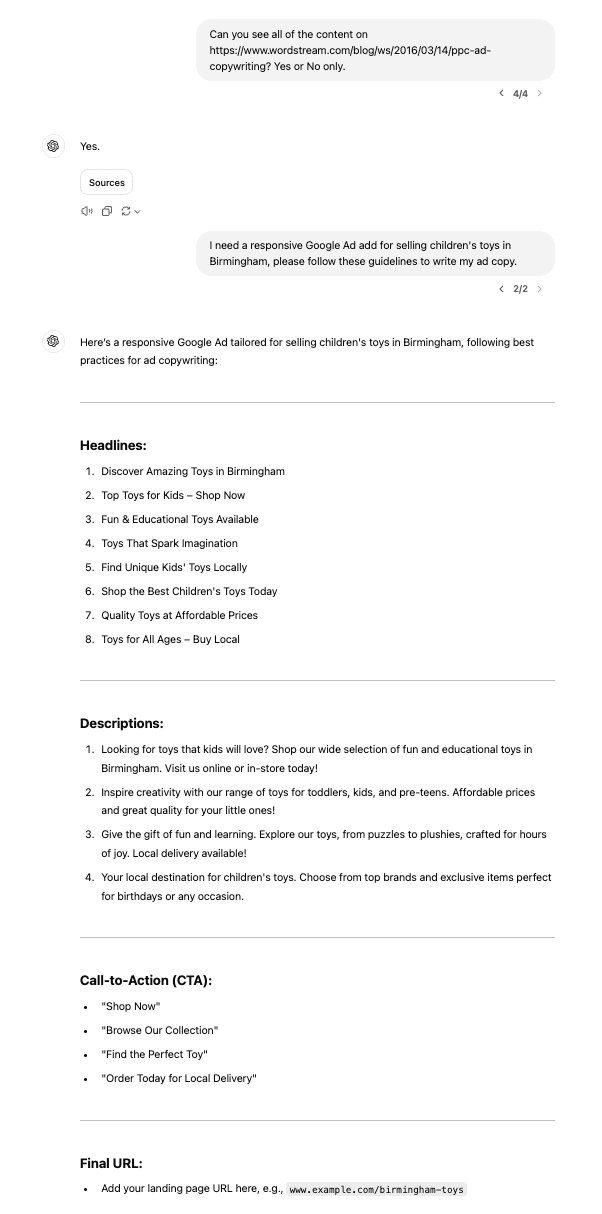
Browse the web and then use ChatGPT for PPC ad copy
